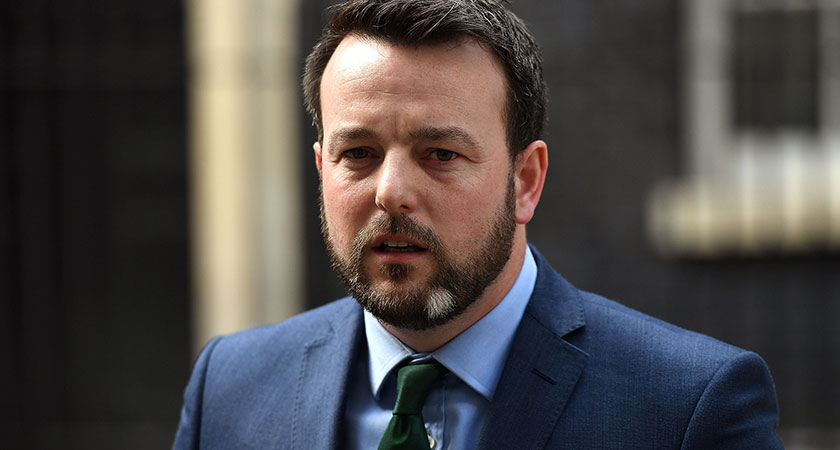PARTIES on both sides of the divide in Northern Ireland have expressed their anger after the British Government's controversial Legacy Bill passed in the House of Commons today.
A Commons vote to reject amendments by the House of Lords passed by 288 votes to 205 and the Bill will return to the Lords next week for Royal Assent.
Sinn Féin described the development as 'cynical and cruel' while the DUP called it 'an affront to justice'.
The Bill seeks to do away with investigations and inquests into Troubles-era cases.
It will instead offer conditional immunity for those who cooperate with a proposed Independent Commission for Reconciliation and Information Recovery (ICRIR).
The Lords' amendments had sought to give victims' families a say on the conditions of immunity.
'Denial of human rights'
Sinn Féin's John Finucane said the Bill is less about promoting reconciliation as the British Government claims and more to do with protecting perpetrators from prosecution.
"The British Government's flawed and irredeemable Legacy Bill has always only been about one thing — closing the door on families ever getting truth and justice," said the North Belfast MP.
"It is absolutely cynical and cruel that the British Government is forcing this bill through despite clear opposition from victims, all the political parties in this island, human rights experts, churches, the US, UN, EU and the Irish Government.
"Sinn Féin will continue to stand with the families in their campaigns for truth and justice, many of them who have been campaigning with dignity and determination for five decades.
"The British government has reneged on an international agreement to implement the legacy mechanisms agreed at Stormont House by the two governments and political parties in 2014 in a human rights' compliant manner.
"I am calling on the Irish government to confront this denial of human rights and breach of international human rights law through an interstate case and international action against the British government."
 Colum Eastwood said the Bill was 'a retrospective license for murder’ (Image: Chris J Ratcliffe/Getty Images)
Colum Eastwood said the Bill was 'a retrospective license for murder’ (Image: Chris J Ratcliffe/Getty Images)SDLP leader Colum Eastwood echoed the call for the Irish Government to take legal action.
He said the Bill had given 'a retrospective license for murder' and denied justice to those affected by 'the most heinous atrocities of the last 50 years in Ireland and Britain'.
"The names of those who have lost loved ones, family and friends should ring in the ears of every MP who supported this appalling bill," he said.
In June, Taoiseach Leo Varadkar said he would consider legal action if the Bill were to become law.
Speaking to reporters in Co. Wicklow today, he said his view had not changed and the Irish Government was taking legal advice.
A decision will be made in the coming weeks, with one possibility being to take the case to the European Court on Human Rights.
'Stand with victims'
The Bill has also drawn opposition from unionist parties, with the DUP's Emma Little-Pengelly saying today’s news was an attempt to 'airbrush the past’.
"Granting immunity to those responsible for some of the most horrific violence and human rights abuses is not only an affront to justice but the latest in a series of bitter blows handed down to innocent victims of terrorism and their families," said the Lagan Valley MLA.
"This Bill plays into the hands of those who want to airbrush the past, by drawing a moral equivalence between terrorists and dedicated public servants in the police and security forces.
"We will continue to stand with victims and will never alter our position that access to justice must always be open."

